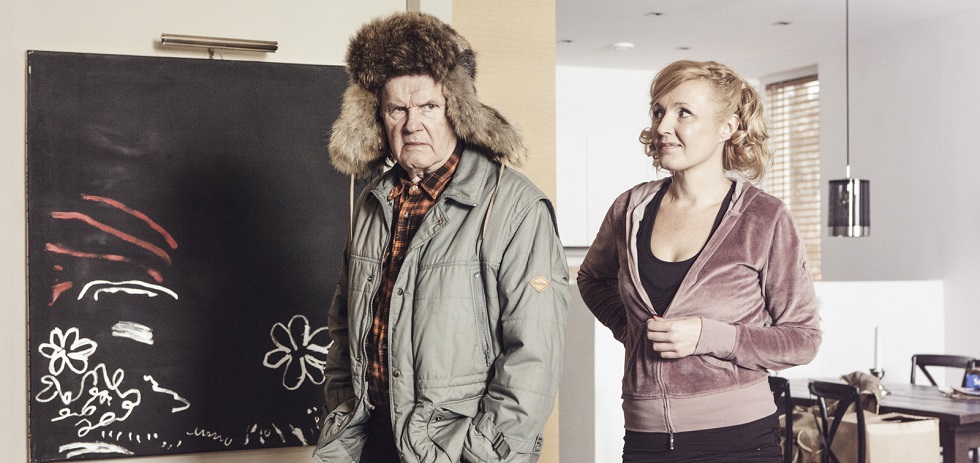Despite its credentials as an adaptation of Tuomas Kyrö’s popular and comical novel of social satire, and an assured performance from the Finnish screen stalwart Antti Litja,1 Dome Karukoski’s The Grump ultimately does little to differentiate itself from the myriad other anodyne culture clash comedy-dramas it both apes and attempts to surpass. A likely commercial success in Scandinavia, the film’s main appeal for other audiences lies in its occasional peculiarly Finnish takes on a well-trodden formula, which lend it an air of watchability without improving upon the clichés at its heart. The narrative illogic and lack of finesse underlying The Grump serve to reduce our investment in its central family, negate most of our interest in its take on the fish-out-of-water comedy, and even turn its tone into an occasionally mean look at ageing and modern malaise.
The problems really begin with the film’s premise, which carries little weight in an of itself, and is hindered further by its setting in a place and time where the issues at hand are far less immediate than elsewhere. Litja’s unnamed elderly farmer – several characters are unnamed and referred to only by their family roles, in an effort at social commentary which is as transparent as its is ineffective – is glumly dragged off to Helsinki by his adult son following a fall which left him stranded on his floor for two days. Arriving there from his rural home, he’s forced to contend with the diversity, modernity, and stark efficiency of the modern Finnish capital. The nation’s reputation for broadly successful economic innovation, accessible technological infrastructure, and considered environmentalism, though, straight away scupper any feeling we may have had that the curmudgeonly grouch at the film’s heart may be onto something. Instead, his negativity towards women in the workplace, the apparently jarring spectacle of non-white Finns, and almost everything else, come off as more hateful than laughable.
The dearth of funny lines given to Litja to work with, too, means that there is little real levity to lend the film the self-aware edge of its source novel, and the satirical ‘letter to the editor’ style comic pieces that first introduced the character. On a more domestic level, his grandfatherly huffing and puffing and outdoorsy brusqueness are played to reasonable effect – standout jokes include his bewilderment that his daughter-in-law (Petra Frey) would scent her bathroom with lavender, used as a nerve agent in the war, and constant references to ‘SK magazine,’ a publication his family’s exhausted sideways glances imply is some kind of populist rag. Once the story completely unbelievably lands him within the daughter-in-law’s business dealings, though, the predictability of his prejudices becomes wearying. He mutters away about the varying degrees of competency of different Soviet leaders when introduced to some Russian potential clients, is amazed by the ‘good Finnish’ spoken by a black barista, and has little respect for his postgraduate student son, who can’t even change the oil on his ancient Ford Escort. That the subplot involving his entanglement in the daughter-in-law’s work goes on for so long is baffling, having enough weight for a ten-minute plot development sequence but instead taking up a third of the film.
Poor prioritisation of the different elements introduced to colour The Grump is an ongoing theme of the film, and robs it of much potential depth. His wife’s progression into the late stages of dementia provides a couple of moving scenes which showcase Litja’s acting ability, but is barely explored beyond an excuse to bookend the film with scenes back at the family farm for some vague poetic credit. The lack of exploration of the main character outside of his own frame of reference also feels shallow. The screenplay makes some interesting implications by occasionally hinting at his intelligence, with assertions about the history and value of the great Finnish traditional drink of coffee, and a sharp awareness of national politics, coming amongst his tirades on other issues. In the end, though, the film’s doesn’t seem to know whether its main character is a rugged but principled old rogue or a limpid, bigoted loser. As such, both its black satire and its out-and-out comedy fall flat – a missed opportunity to skewer the uniform urban technocracy of Northern Europe, The Grump instead fumbles its way into becoming a mediocre family comedy with more cringes than laughs.

